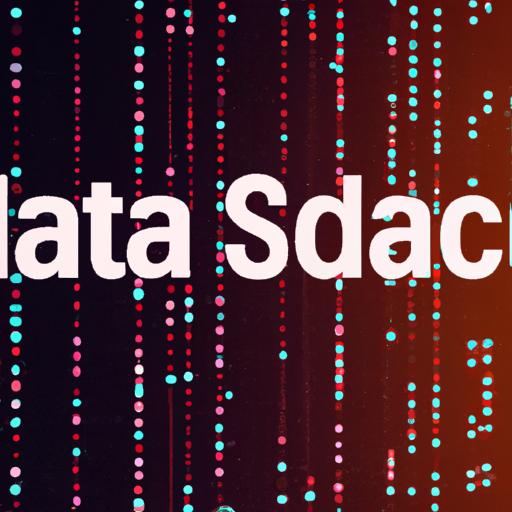Introduction
In the ever-evolving landscape of technology, two prominent fields, data science and computer science, stand out as pillars of innovation. But what exactly do these terms entail, and why are they crucial in today’s digital realm?
Data science is the art of extracting insights and knowledge from vast volumes of data through various techniques, including statistics, machine learning, and data visualization. It empowers organizations to make informed decisions, predict trends, and drive strategic growth. On the other hand, computer science encompasses the study of algorithms, programming languages, and the theoretical foundations of computing systems. It forms the backbone of software development, cybersecurity, and artificial intelligence.
These disciplines not only shape the technological landscape but also offer lucrative career opportunities for aspiring professionals. Understanding the nuances of data science and computer science is essential for anyone venturing into the realm of technology. Let’s delve deeper into these captivating fields and unravel the mysteries behind their significance in the digital age.
Overview of Data Science
Understanding Data Science and Its Applications
Data science is not merely about analyzing numbers; it’s about uncovering hidden patterns and insights that drive strategic decision-making. By leveraging statistical techniques, machine learning algorithms, and data visualization tools, data scientists transform raw data into actionable intelligence. From predicting consumer behavior to optimizing business operations, the applications of data science are vast and impactful.
Essential Skills for a Career in Data Science
To excel in the realm of data science, one must possess a diverse skill set that includes proficiency in programming languages such as Python and R, knowledge of statistical methodologies, and expertise in data manipulation and visualization. Additionally, critical thinking, problem-solving abilities, and a keen eye for detail are crucial traits that differentiate exceptional data scientists from the rest.
Exploring Job Opportunities in Data Science
The demand for skilled data scientists continues to soar across industries, ranging from finance and healthcare to e-commerce and technology. Positions such as data analyst, data engineer, and machine learning specialist offer lucrative career prospects for individuals with a passion for turning data into valuable insights. With the digital landscape evolving rapidly, the opportunities in data science are endless for those willing to embark on this exciting journey.
Overview of Computer Science
Understanding Computer Science and Its Applications
Computer science, often referred to as the science of computation, is a multidisciplinary field that encompasses the study of algorithms, data structures, and programming languages. It serves as the foundation for developing software, designing systems, and solving complex computational problems. From creating cutting-edge applications to optimizing network infrastructures, computer science plays a pivotal role in shaping the digital landscape.
Essential Skills for a Career in Computer Science
To excel in the realm of computer science, individuals need a diverse skill set that includes proficiency in programming languages, problem-solving abilities, and a deep understanding of computer architecture. Strong analytical skills, attention to detail, and creativity are also essential for tackling intricate technical challenges. As technology continues to advance, staying abreast of the latest trends and technologies is key to thriving in the dynamic field of computer science.
Lucrative Job Opportunities in Computer Science
The demand for skilled computer science professionals is skyrocketing across various industries, offering a plethora of rewarding career opportunities. From software development and cybersecurity to data analysis and artificial intelligence, computer science graduates can pursue diverse roles in both the private and public sectors. With the digital transformation driving innovation worldwide, the future looks bright for those embarking on a career in computer science.
Key Differences Between Data Science and Computer Science
Focus of Study
When it comes to the focus of study, data science revolves around analyzing and interpreting complex data sets to derive actionable insights and predictions. In contrast, computer science primarily deals with the design, development, and optimization of software and computing systems. While data science emphasizes data manipulation and modeling, computer science delves into algorithms, data structures, and software engineering principles.
Job Roles and Responsibilities
The job roles and responsibilities in data science and computer science also exhibit distinct characteristics. Data scientists are tasked with collecting, cleaning, and analyzing data to uncover patterns and trends. They often work closely with stakeholders to address business challenges and drive data-driven decision-making. On the other hand, computer scientists focus on programming, software development, and system architecture. Their roles may involve designing algorithms, developing applications, and ensuring the efficiency of computing systems.
Skillset Required
In terms of the skillset required, data scientists need proficiency in statistical analysis, machine learning, and data visualization tools. They should possess strong programming skills, particularly in languages like Python and R. On the other hand, computer scientists must excel in programming languages such as Java, C++, and SQL. Additionally, they need expertise in algorithms, data structures, and software development methodologies.
Salary Prospects
When considering salary prospects, data scientists and computer scientists both enjoy lucrative compensation packages. However, the earning potential may vary based on factors such as experience, location, and industry. Data scientists, with their expertise in data analysis and machine learning, often command high salaries in industries like finance, healthcare, and technology. Computer scientists, with their proficiency in software development and system optimization, are also in high demand across various sectors, leading to competitive salary offerings.
Similarities Between Data Science and Computer Science
Overlapping Skills and Knowledge
Both data science and computer science require a solid foundation in programming languages, mathematics, and problem-solving skills. Professionals in these fields often utilize similar tools and techniques to analyze data, build algorithms, and develop software solutions. The ability to think critically, work with large datasets, and communicate findings effectively are essential skills that bridge the gap between data science and computer science.
Interdisciplinary Nature of Both Fields
Data science and computer science are not isolated disciplines but rather interconnected realms that draw upon various domains such as statistics, artificial intelligence, and information theory. The interdisciplinary nature of these fields allows professionals to explore diverse applications, collaborate with experts from different backgrounds, and innovate through cross-disciplinary projects. This synergy fosters a rich ecosystem of knowledge exchange and continuous learning, driving advancements in technology.
Collaboration Opportunities Between Data Scientists and Computer Scientists
In today’s fast-paced digital world, collaboration is key to unlocking the full potential of data science and computer science. Data scientists bring expertise in data analysis and interpretation, while computer scientists excel in software development and system design. By working together, these professionals can harness their complementary skills to tackle complex problems, develop innovative solutions, and drive transformative change in various industries. The synergy between data scientists and computer scientists paves the way for groundbreaking discoveries and technological advancements that shape the future of our digital landscape.
Conclusion
In conclusion, the comparison between data science and computer science illuminates the diverse yet interconnected nature of these two fields. While data science delves into the realm of big data analytics and predictive modeling, computer science focuses on the theoretical underpinnings of computing systems and software development.
By understanding the key differences and similarities between data science and computer science, individuals can make informed decisions about their career paths and skill development. Whether you are drawn to the analytical prowess of data science or the problem-solving capabilities of computer science, both fields offer a wealth of opportunities for growth and innovation in the technology industry.
As we navigate the ever-changing landscape of technology, embracing the dynamic nature of data science and computer science is paramount. By staying abreast of emerging trends, honing your skills, and fostering a spirit of collaboration, you can embark on a rewarding journey in either field. The future of technology is bright, and the possibilities are limitless for those willing to explore the realms of data science and computer science.

